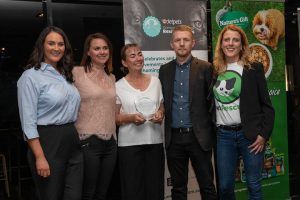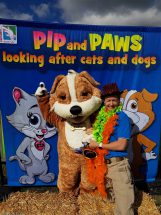A Sydney council’s pet awareness program has seen a decrease in the number of animals being sent to the local animal shelter and a drop in euthanasia rates.
Camden Council’s Pet Awareness and Safety (PAWS) program started in 2014 with the aim of educating residents about responsible pet ownership. It is overseen by an advisory committee and includes awareness programs for children along with free information nights for residents.
Council also provides free microchipping, along with subsidised desexing of pets and an animal shelter to rehome pets.
Since the program started there’s been a 42 per cent reduction in animal seizures, an 80-per cent drop in euthanasia rates and a 13-per cent increase in adoptions, team leader of ranger services Renee Galinaitis said.

“We used to rely heavily on rescue organisations to take our animals, and that’s dropped significantly because we’re finding that not as many animals are coming into the pound, and we’re actually rehoming more of them because of the program,” Ms Galinaitis told Government News.
Last month, PAWS won an award at the Jetpets Companion Animal Rescue Awards for Community Education and Outreach Program of the year.

Environment and Regulatory Service Manager Sam Gill says the award is confirmation that the PAWS team is moving in the right direction.
“It is a confirmation that we are moving in the right direction with the program, and that we do have quite a positive impact on our residents and companion animals,” he told Government News.
“I think (it’s) also recognition for the hard work and commitment of our advisory committee and also the dedication of our rangers team.”
Education, not enforcement
Ms Galinaitis says recent rapid growth in population in the local area meant that many animals were coming into the pound without a microchip.
“Because we’re a fast-growing council, a lot of people were moving into the area, and they weren’t changing their details or their animals weren’t microchipped,” she said.
“So we were impounding these animals and weren’t able to return them back to their owners, so we had to find a way to educate people, especially (those) coming into the area, to update their details and make sure their animals were microchipped.”
Mr Gill said microchips are important because they assist them in returning animals to their owners, and the program aims to drive the message home and encourage pet owners to do it.
“We would find (animals), and if they were microchipped or registered we’d return them to their owners straight away, but if they’re not then it’s very difficult to return them,” he said.
For other councils who are interested in starting up similar programs, Mr Gill advises that they first seek to get councillors on board.

“I think that was one of the keys to the success of the program because there was a lot of support from council, and from management as well, that there really wasn’t a lot of challenges in terms of setting the program up,” he said.
It is also important to focus on education and not enforcement, Mr Gill says. The PAWS team found that there is some stigma attached to rangers.
“Rangers are usually associated with enforcement activity, so rangers usually mean someone’s in trouble,’ Mr Gill said. “Whereas with this program, it’s not about that, it’s about helping people to do the right thing.”
It is also helpful to let the program evolve over time and to target a specific group, Mr Gill said.
“Start small, let the program evolve based on feedback and from what your advisory committee might want and maybe target a specific group … and set some clear goals,” he said.
The PAWS team will continue working with the community to improve the program and address the needs of the community.
“We will continue to work with the community to ensure that it’s working for the community, and is addressing their needs and what’s best for the community and the companion animals within the community,” Mr Gill said.





Leave a Reply